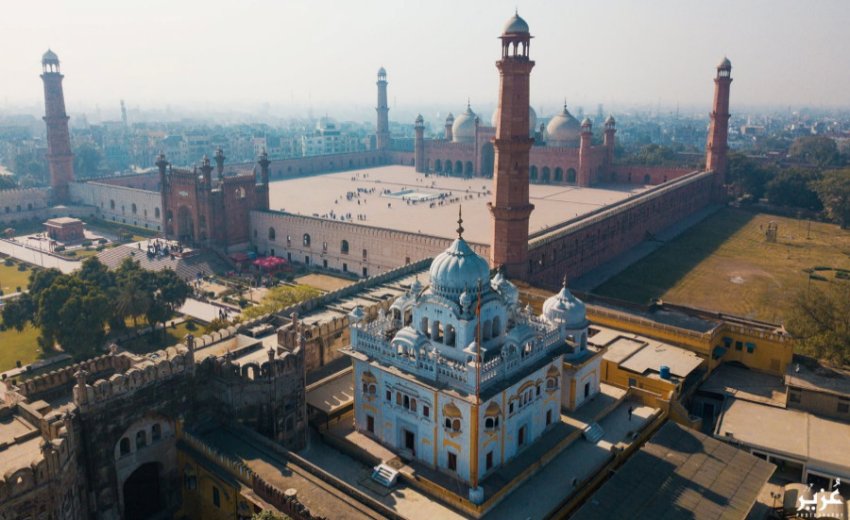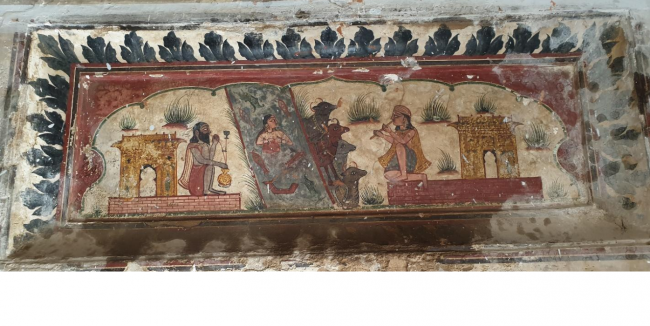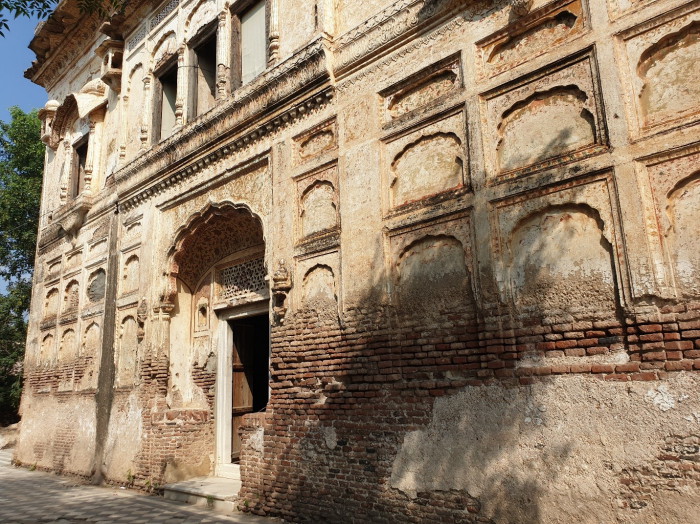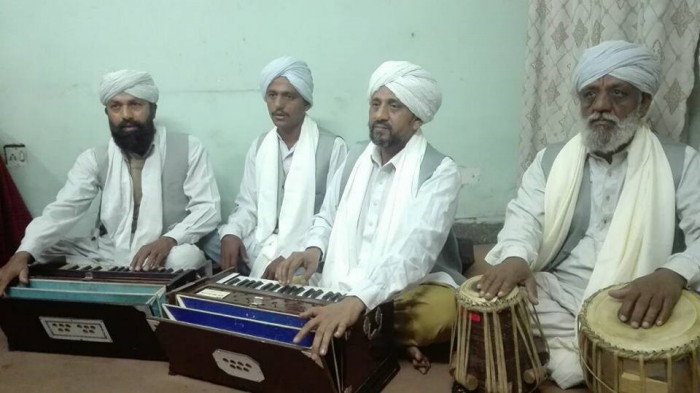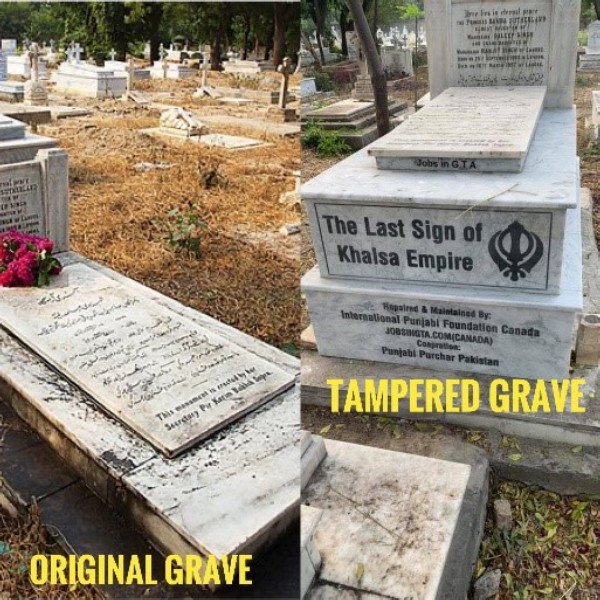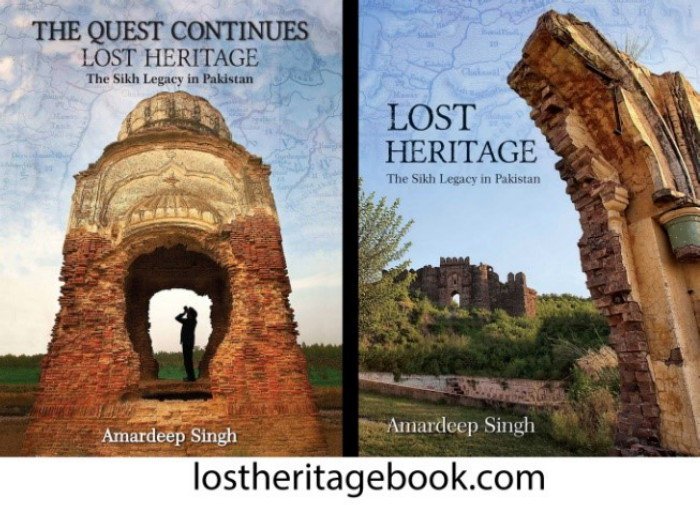The successful inauguration of the Kartarpur Corridor has encouraged many across the global Sikh community to consider making the journey to Sikh sacred spaces in the heart of Pakistan. Called "Adventure travel's best-kept secret,” ," in a recent CNN article, Pakistan poses a unique set of prospects and challenges to the Sikh pilgrim. As most of the existing tourism industry in Pakistan is built around the appeal of its scenic northern regions, the average Pakistani tour operator or citizen is not likely to be well informed about the country's Sikh heritage landscape.
The greatest obstacle prospective Sikh travelers to Pakistan face is the scarcity of reliable information that they can use to plan their journey. As the founder of a Pakistani travel company that focuses only on Sikh heritage tourism, I want to share insights gained from our work on the ground that can help address some of the common questions that folks have before visiting Pakistan. The points below are not in order of priority; whereas some are actionable items, others have to do with attitude and expectations. I hope pilgrims & travelers planning to visit Pakistan can use this information to have a visit that is meaningful, fun, comfortable and safe.
India and Pakistan's current visa policies towards each other are not travel friendly. Therefore, for the purpose of this article, I will be focusing on non-Indian passport holders who can travel freely in Pakistan on their tourist visas.
1. Is Pakistan safe to visit?
- There has been a 92% decrease in terrorism related incidents in Pakistan since 2013, according to accurate and updated global data (1).
- International tourism to the country has more than tripled since 2014, primarily due to the improvement in the security situation (2).
- In June 2019, the United Nations restored Islamabad's status as a work destination that is considered safe for the families of its international staff (3).
- Between 5,000-10,000 Sikh pilgrims have been visiting Pakistan annually over the last decade; there have been no reported incidents either of harassment or violent attacks on Sikh tourists.
- Lahore's crime rate is comparable to global standards and, according to data, is safer than other South Asian cities like Delhi and Mumbai (4).
General Advice: Request your tour operators to familiarize you with the social norms and conventions of the regions in Pakistan that you plan to travel to. Given how emotions tend to be polarized around Indo-Pak issues, visitors would always be well advised to avoid discussions on politics and focus instead on making the most of their spiritual journey to Pakistan.
2. Choosing a tour operator
This could be the factor that most impacts the quality of your experience in Pakistan. Recent years have seen a surge in the number of individuals and companies in Pakistan offering religious tours. Here are a few factors that could help simplify the search process:
- Ask to see a copy of their tourism license. Only choose tour operators who have been issued a license by the Department of Tourist Services (DTS) to carry out tourism in Pakistan. The DTS has laid down stringent criteria to issue these licenses. This should hopefully help you filter out some of the unreliable options.
- Insist on paying your tour operator through conventional banking channels, even if it costs you a marginal amount. Tour operators who ask to receive their payments either entirely in cash on arrival, or through other financial intermediaries could be unreliable.
- Websites that show media coverage or testimonials from previous clients are always an encouraging sign.
3. Online e-visa process
As of 2019, Pakistan launched its online visa application process that eliminates the need to physically submit your passport to the nearest Pakistan High Commission or Consulate. Applications typically take two to three weeks to process , which is a massive improvement over the traditional visa application process. To complete the E-Visa application, process you will need to request your tour operator for supporting documents from Pakistan. Once you have the e-visa, you may enter Pakistan via Wagah or fly in to the country.
4. Things to know as you prepare for arrival
- Cash: Since Pakistan is a primarily a cash-based economy, visitors are advised not to rely too much on their credit and debit cards. Although ATM's are easily accessible in the major cities, most Pakistani banks have a daily withdrawal limit ranging from PKR 20,000 to PKR 50,000. Notify your bank before using your cards in Pakistan.
- Getting around Pakistani cities: Uber and the Middle Eastern ride sharing service Careem are the most widely used ride sharing apps in Pakistan. You should be able to use them seamlessly in Lahore, Rawalpindi, Islamabad and Peshawar.
- Connectivity: All major towns and cities have 4G mobile internet coverage. Visitors can procure a local SIM card on showing their valid visa and passport at a retailer. Groups are advised to get a Mobile Wifi device (costs between around $40 including a monthly plan) from Pakistan that can connect to up to 15 devices simultaneously.
5. Religious Tourism vs Heritage Tourism
Most Sikhs visiting Pakistan don't venture beyond the four major Gurdwaras: Dera Sahib, Nankana Sahib, Kartarpur Sahib and Panja Sahib. However, appreciating the richness of Sikh heritage in Pakistan requires an understanding of history that goes beyond what is taught in standard history books. In addition to the major religious sites, Pakistan has hundreds of places that are testament to the forgotten legacies of the Sikh artists, entrepreneurs, thinkers, mystics, administrators and warriors who hailed from West Punjab. It's worth remembering that over eighty percent of Maharaja Ranjit Singh's Empire comprised of regions that are in Pakistan today. Whether in the form of centuries old fresco paintings adorning the walls of abandoned palaces in the hills of West Punjab or forts, battlefields, palaces and infrastructure projects, the Sikh legacy in Pakistan is patiently waiting to be discovered by pilgrims who are willing to go off the beaten track.
In addition to connecting with sacred spaces and heritage sites in Pakistan, experiencing local cuisine, art and culture while you are here is a great way to have an emotionally fulfilling visit and really connect with your roots. Thanks to Coke Studio, Pakistan's diverse traditions of Punjabi folk culture have found global audiences. Folk artists in Pakistan usually belong to the least privileged section of society. Supporting their work through tourism is the only sustainable way to ensure the survival of the the centuries old cultural traditions they proudly carry. Our company engages 40 artists and performers on a typical tour. You can check here to get an idea of the cultural experiences that can we offer our guests.
6. Ethical Tourism
Every year, millions of people from wealthy nations travel to poor countries, hoping to do good. Even though the aspiration to help others is a noble one, when done in a spur-of-the-moment manner without awareness of the underlying issues, financial oversight plans and regular follow up, philanthropy while on vacation can end up doing more harm than good.
Seeing Sikh heritage sites in Pakistan that are in their original condition can be an overwhelming experience. However, tourism can take its most damaging form when uninformed tourists take on the role of heritage conservationists. A good example is the recent modification by Canadian tourists of the grave of Princess Bamba Sutherland (Maharaja Ranjit Singh's granddaughter) in Lahore. Princess Bamba's grave now prominently features the name, tagline and even the website of the funding organization in Canada.
Buying from small businesses owned by minorities and women, supporting small vendors and artists is one of the best ways of contributing towards ethical tourism.
7. Educate yourself: reading recommendations
I would highly recommend reading Lost Heritage: The Sikh Legacy in Pakistan and The Quest Continues: The Sikh Legacy in Pakistan by Amardeep Singh to those curious about the hidden gems of Sikh heritage in Pakistan that are off the standard tourist trail. Despite my family connection with Sikh history, it was only after meeting with Amardeep Singh and learning about his journey that I became inspired to start a social enterprise dedicated to Sikh heritage tourism in Pakistan.
I would also recommend is Afghan Sikhs and Hindus: History of a Thousand Years by Inderjeet Singh. This is a well-researched account on the historical genesis of the Pashto speaking Sikh community that comprises most of Pakistan's Khalsa Sikh population.
Let the voyage begin, recalling the words of the great American travel writer Phil Cousineau:
"What matters most on your journey is how deeply you see, how attentively you hear, how richly the encounters are felt in your heart and soul."
Jahandad Khan
is the founder of Indus Heritage Club, a Pakistan based Sikh heritage tourism company.
References:
1. South Asia Terrorism Portal: https://www.satp.org/datasheet-terrorist-attack/incidents-data/pakistan
2. Dawn: https://www.dawn.com/news/1360604
4. IDEAS: http://ideaspak.org/political_economy/victimization-citizen-engagement-and-policing-in-lahore/
NOTE: Title image: Maharaja Ranjit Singh's Samadhi adjacent to Lahore's Badshahi Mosque.
Photo credits: Uzair Aziz
The author, Jahandad Khan, can be reached at: [email protected]
